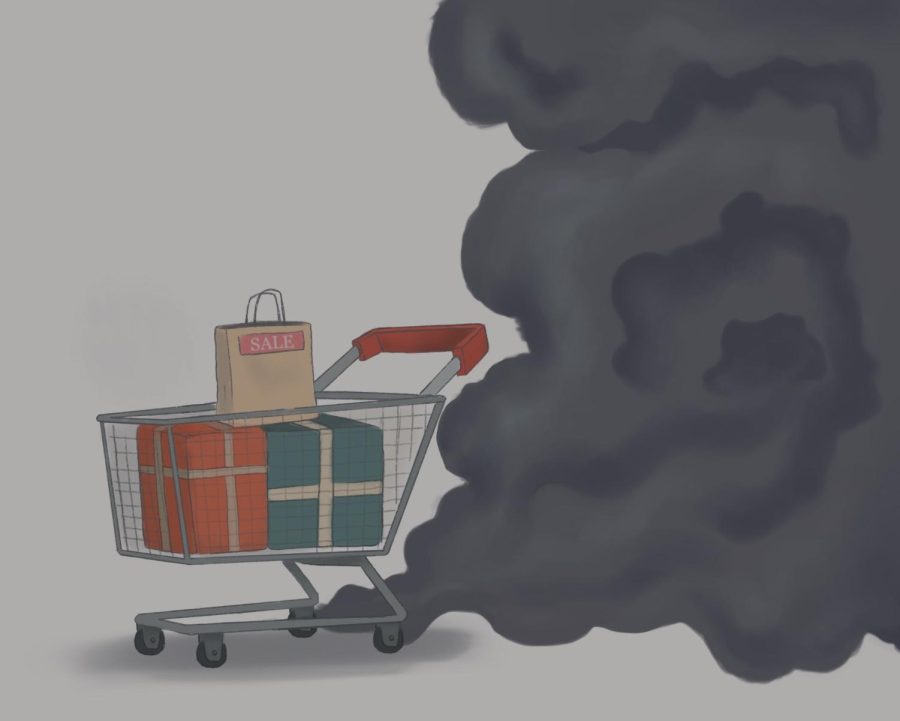Opinion: The holiday season promotes consumerism in harmful ways
December 15, 2022
As the holidays creep around the corner, shameless amounts of flashy advertisements begin to pop up, boasting a “Black Friday Sale” or the “perfect holiday gift.” Targeted deals and massive billboards coerce consumers into spending copious amounts of money on frivolous items, many of which will inevitably end up in landfills, further adding to the concerning amount of waste in the world.
According to a study conducted by an industry leading financial consulting firm called Deloitte, United States consumers spent over $1.1 trillion during the holiday season in 2019 alone. Not to mention, holiday shoppers in the U.S. are extremely susceptible to marketing offers, with over 81.5% of U.S. consumers being influenced by holiday discounts and promotions. The promotional offers that have proven most effective for corporations are price discounts—researchers say that over 94% of respondents cited it as the most appealing.
Corporations create these tempting discounts simply to wring consumers of every feasible dollar. Although holiday promotions are presented under the pretense of spreading joy and connection, five billion pounds of gift returns end up in landfills, a testament to the unnecessary excess that is a hallmark of the holiday season.
The Environmental Protection Agency stated that in the time between Thanksgiving and New Year’s, a household’s waste increases by 25%, which is about 1,000 excess pounds of trash. Not only are Americans being pressured into buying unnecessary items during the holiday season, but the consequences of these purchases are harmful to the environment.
According to senior resource specialist at the Natural Resources Defense Council Darby Hoover, everything a person buys ends up affecting an ecosystem; producing a product requires natural resources and raw materials, including water, trees, fossil fuels, and chemicals, including ones like PFAS, a highly toxic chemical that companies commonly use to waterproof products.
One way a person can combat the creation of all of this waste is to regift, repurpose, or donate their goods. Second-hand stores are always looking for donations, and there are always plenty of toy drives available during the holiday season.
All of this is not to demonize holiday shopping. Buying gifts for friends and family is a meaningful and important part of the holidays. However, because corporations tend to exploit people during the holiday season, we must be ultra-aware of our choices as consumers.
This year, instead of shopping simply because of sales, try to shop for meaningful gifts that will last. Don’t buy something for the sake of buying it. Even try making a gift for a loved one. Many times, the most remembered and cherished gifts are the ones with the funniest stories behind them.















